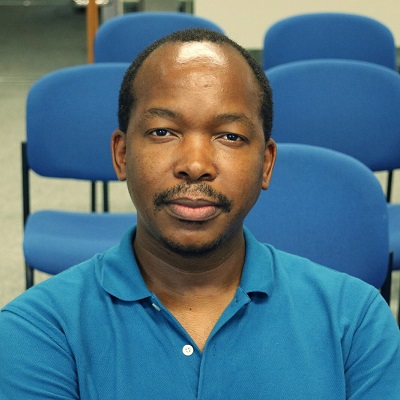Hanging on by a thread — the critical linkages in citizen-generated data
December 16, 2022
The social accountability monitoring (SAM) initiative for adolescent sexual and reproductive health (SRH) rights and services, MobiSAfAIDS, has been operating in six Southern African countries since 2018 demonstrating the potential of citizen-generated data to contribute to SRH outcomes for adolescents and advancing SDG 3 “Good health and well-being” and 5 “Gender equality” imperatives. MobiSAfAIDS was scaffolded from MobiSAM, another SAM initiative launched in 2012 in South Africa towards improved government service delivery.
The SAM approach is a critical component of both initiatives as it provides a rights-based and evidenced-based framework for enabling citizens to participate in government service delivery processes by holding governments accountable for public resource planning, expenditure, and performance for service delivery. In both initiatives, citizens report and generate data on service delivery issues they experience in their municipality - for MobiSAM, and with SRH services at health facilities - for MobiSAfAIDS. Once reported, issues go through a resolution workflow that involves the government assigning issues to relevant departments and service providers while engaging with citizens on any follow-up discussions. Once issues have been marked as resolved, the citizens - who reported the issue in the first place - are responsible for confirming the resolution and closing the issues.
The effectiveness of SAM and these initiatives increases as the role of citizens progresses through the four dimensions of citizen engagement from information - reducing information asymmetry through one-way access to relevant, timely, and actionable information, participation - through two-way communication between citizens and governments, collaboration - the active collaboration between citizens and governments in resolving issues, and empowerment - where citizens and government are empowered to contribute to joint decision-making towards the achievement of collective intelligence.
However, the effectiveness of SAM and of citizen-generated data to advance good governance and sustainable development outcomes can be hampered and challenged by several factors which have been observed over the years of the MobiSAM and MobiSAfAIDS initiatives. These factors can be clustered into the transparency, accountability, and participation (TAP) challenges. However, the single thread that ties all these together and on which SAM and citizen-generated data stand or fall is trust.
Trust is defined as the “firm belief in the reliability, truth, ability, or strength of someone or something”; as it relates to national governance, it has been defined in terms of the citizens’ firm belief that their governments care about their constituents, are transparent, capable and competence, and reliable. Globally, the 2021 Elderman Trust Barometer has found varying levels of trust across the countries they surveyed but observed a general pattern of decline in trust in government leaders. Overall, as far as citizen-generated data goes, citizens need to trust that the continued contribution of data will translate into real outcomes that they have reason to value (e.g., improved service delivery). Other critical elements that support citizen-generated data initiatives were observed in MobiSAM and MobiSAfAIDS across the transparency, accountability, and participation dimensions:
Transparency relates to the extent to which information about governments' decision-making processes, procedures, functioning, and performance is revealed to citizens. The ability of citizens to understand the plans, policies, and position of the government regarding service delivery (i.e., policy information transparency) is a critical precursor and catalyst for their participation. In MobiSAfAIDS, the groundwork of sensitizing citizens and SAM champions to their SRH rights and relevant policies, is the foundation on which the SAM technology platform is deployed. Further, citizen-generated data on specific service delivery indicators plays a critical role towards policy outcome transparency by providing a real-world assessment of the effectiveness and impact of governments policies and programs.
Accountability is primarily the extent to which governments are answerable (to their citizens) for performance. One element of accountability that has been critical in MobiSAM and MobiSAfAIDS is governments’ responsiveness, which manifests in the frequency of government officials' engagement on the technology platforms; how quickly issues get attended to (i.e., assigned and resolved); the level of interaction and deliberation between citizens and governments; and the overall inclination of government to address citizens’ concerns. For example, for MobiSAfAIDS it takes about two weeks on average for reported issues to get assigned across the different countries, however, as shown in the chart below, there are significant differences between the governments, on this aspect of responsiveness, which impact the effectiveness of the overall program. The governments’ accountability and responsiveness are the necessary reciprocal response to citizen’s voice and sustain the continued contribution of data by the citizens.

Participation is not only about the nominal contribution of data by citizens, nor about the instrumental benefits to service delivery, but about the transformative empowerment of citizens to hold governments accountable, democratic participation in decision-making, and exercise of agency towards their livelihood and wellbeing. In MobiSAM and MobiSAfAIDS, the supporting interactions between citizens and government, outside the data technology platform, have been critical. Further, mediators, such as the SAM champions, have also played a critical role in brokering the participation of citizens. In some case, they have been the single point of potential failure in the citizen-generated data pipeline.
While the role of trust has been discussed in this piece with regards to effects of citizens’ trust of governments, we have observed that trust extends to all other elements of citizen-generated data assemblages. For example, it includes governments’ trust of civil society stakeholders involved; users trust of the tools and technologies employed; and the overall trust in the collective intelligence of democratic governance and citizenship.
Trust is the thread that holds together not only national citizen-generated data systems, but also global sustainable development data systems; the upcoming United Nations World Data Forum (UNWDF) recognizes and acknowledges this role of trust in data systems and has carved a space during the forum, under a thematic area on “Building trust and ethics in data”, for further discussions and knowledge sharing on this issue.
(Further detailed lessons and insights from MobiSAM and MobiSAfAIDS will tentatively be shared at the UNWDF 2023 in session TA1.17 “How can we build trust in citizen science to inform policy decision and actions?” and in a chapter in the upcoming booking “Public Policy and Technological Transformations in Africa – Naturing Policy Entrepreneurship, Policy Tools, and Citizen Participation ”)


